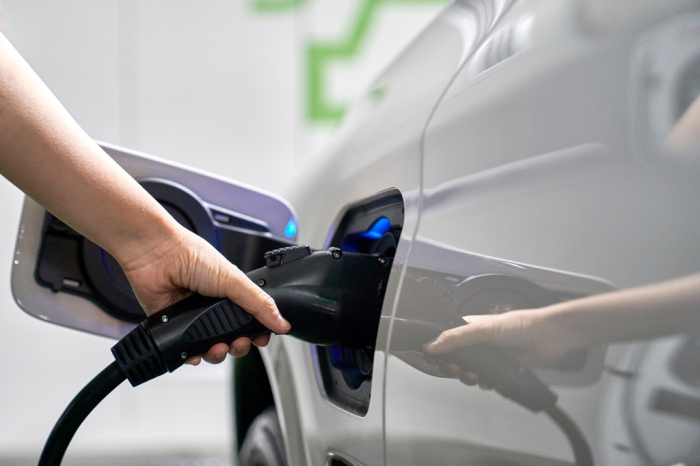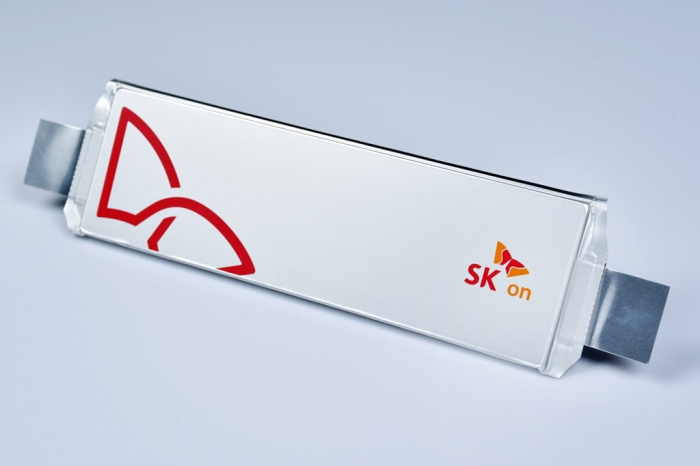Batteries
EV charging speed, battery sectorŌĆÖs emerging battlefield
Samsung SDI to mass-produce batteries that last for 600 km and can be charged in nine minutes by 2026
By Mar 11, 2024 (Gmt+09:00)
3
Min read
Most Read
Alibaba eyes 1st investment in Korean e-commerce platform


Blackstone signs over $1 bn deal with MBK for 1st exit in Korea


NPS loses $1.2 bn in local stocks in Q1 on weak battery shares


OCI to invest up to $1.5 bn in MalaysiaŌĆÖs polysilicon plant


Korea's Lotte Insurance put on market for around $1.5 bn



South KoreaŌĆÖs three major battery makers are rushing to shorten times for electric vehicle charging, the main issue for consumers reluctant to buy the clean vehicles.
Those cell producers see EVs as unlikely to be widely popularized unless consumers can charge electric cars as quickly as they fuel internal combustion engine vehicles. Automakers struggling to deal with slower EV demand are also expected to buy only fast-charging batteries.
Samsung SDI Co., the worldŌĆÖs seventh-largest EV cell manufacturer, last week unveiled a goal to mass-produce batteries that last for 600 kilometers (373 miles) and can be 80% charged in nine minutes, from 2026.
The unit of South KoreaŌĆÖs top conglomerate Samsung Group found EV charging speed was the top common concern among customers in all major EV markets including China, the US and South Korea, in a research of a global consulting firm on behalf of the battery maker, according to industry sources in Seoul on Monday.
Consumers in each country had previously worried about different issues such as costs, safety and mileage. Drivers now focus on charging speed as battery and EV makers have improved safety and mileage.
FOR 300 KM WITH CHARGING IN FIVE MINUTES
To satisfy customers, Samsung SDI expects the industry to need technology to charge batteries in five minutes that can drive up to 300 km.
ŌĆ£An analysis of consumersŌĆÖ milage patterns showed 99.6% of motorists drive up to 300 km a day,ŌĆØ said a Samsung SDI official. ŌĆ£Charging within five minutes would meet most driversŌĆÖ needs.ŌĆØ
It takes only three to five minutes to fill up internal combustion engine cars, while EV drivers have to spend about 20 minutes to one hour repowering with even the fastest chargers. Improvements in battery charging speed are predicted to reduce the time for slow charging, which currently takes about eight hours.
Battery makers, which have been fiercely competing to enhance energy density, a core factor of the mileages and outputs of EVs, are now expected to concentrate on developing fast-charging technology to recharge the ailing global EV industry.
LARGER PLAYERS ARE ALSO IN THE RACE
SK On Co. and LG Energy Solution Ltd., SamsungŌĆÖs larger competitors, are also working to shorten charging times.
SK On, the worldŌĆÖs fifth-largest player, unveiled a battery that can be charged for 600 km in 15 minutes at a recent battery industry show in Seoul.

The South Korean company aims to develop batteries for 300 km charging in five minutes by 2030. The target is slower than Samsung SDIŌĆÖs goal by four years, but SK On believes it is correct considering the speed of installation of infrastructure such as fast chargers.
LG Energy, the global No. 3 battery maker, increased investments in improving charging speed although it has yet to unveil a target.
ŌĆ£We are considering all technology on fast charging,ŌĆØ LG Energy CEO Kim Dong-Myung told reporters on March 7 on the sidelines of the InterBattery 2024 trade show. ŌĆ£We are developing all technology for better charging speed such as double layer and silicon anodes with a plan to unveil them at an appropriate time.ŌĆØ
Battery makers are likely to face difficulties in cutting charging times at similar production costs as the technology usually requires higher expenses, industry sources said. South Korean battery makers are developing technology to improve the speed of lithium-ion transfer by enhancing anode materials or through the special coating of anodes.
Write to Sang Hoon Sung at uphoon@hankyung.com
┬Ā
Jongwoo Cheon edited this article.
More to Read
-
 BatteriesKorean EV battery makers to unveil tech for industry recharge
BatteriesKorean EV battery makers to unveil tech for industry rechargeMar 04, 2024 (Gmt+09:00)
3 Min read -
 BatteriesEV battery makers' silicon anode demand set for take-off
BatteriesEV battery makers' silicon anode demand set for take-offFeb 23, 2024 (Gmt+09:00)
1 Min read
Comment 0
LOG IN


